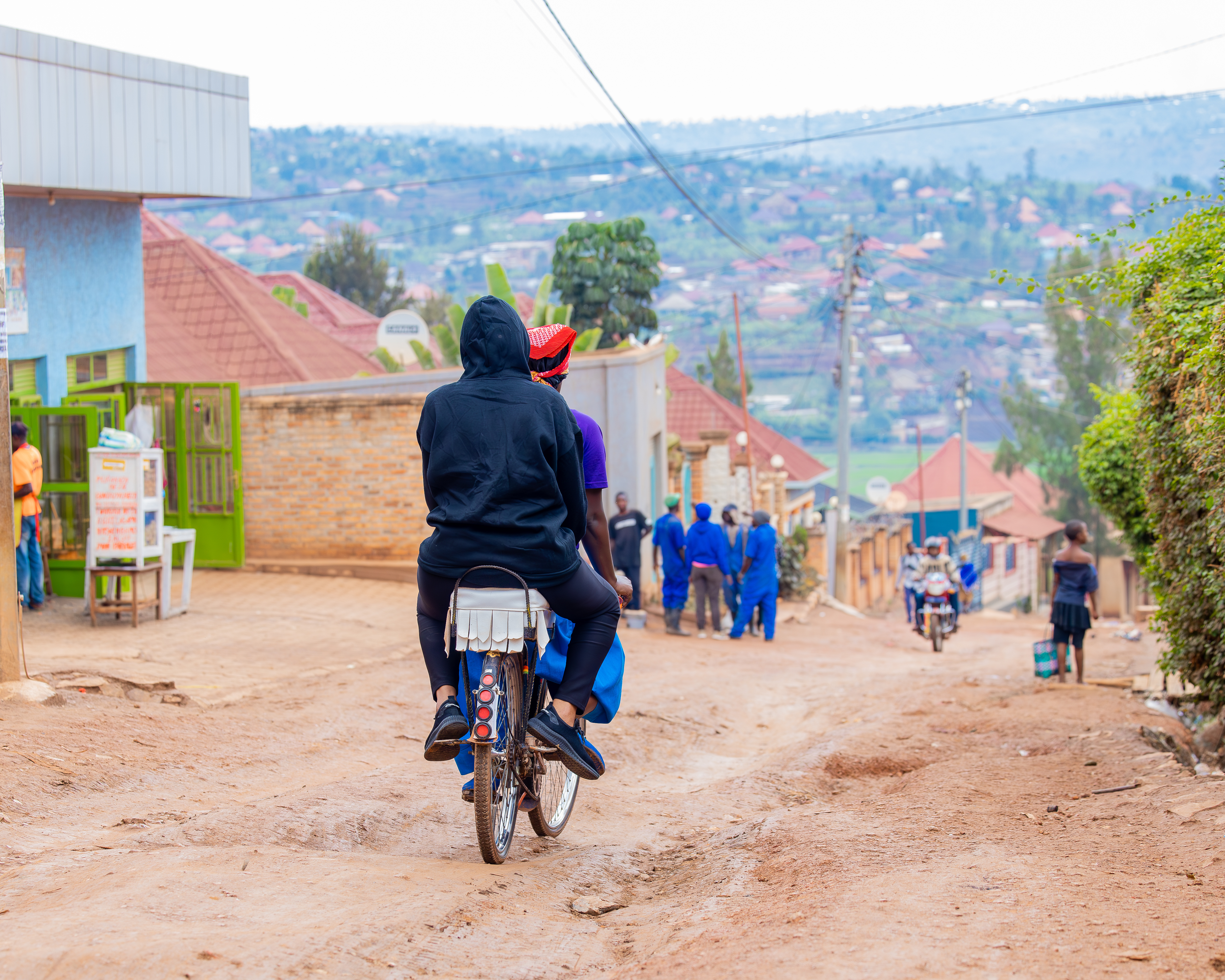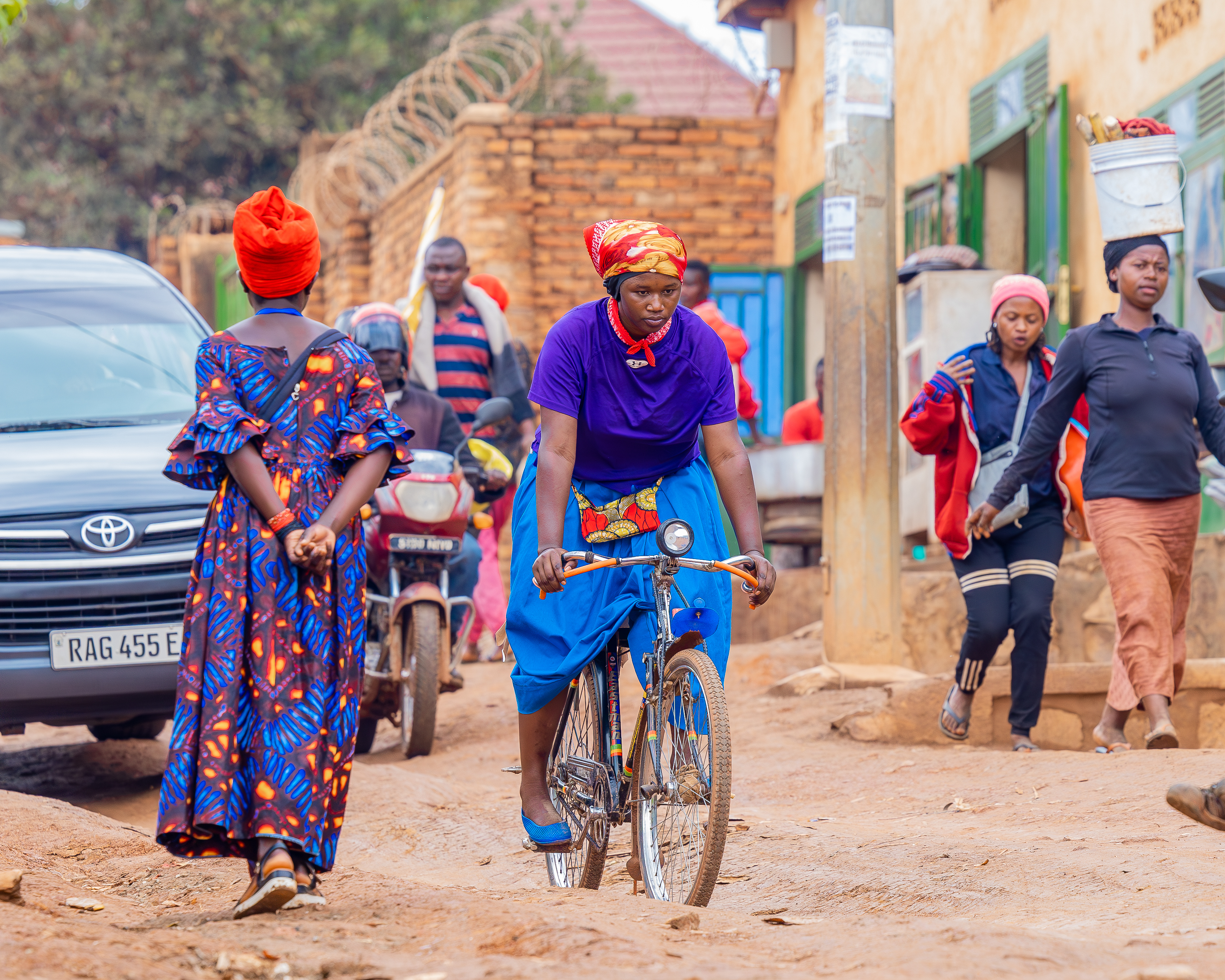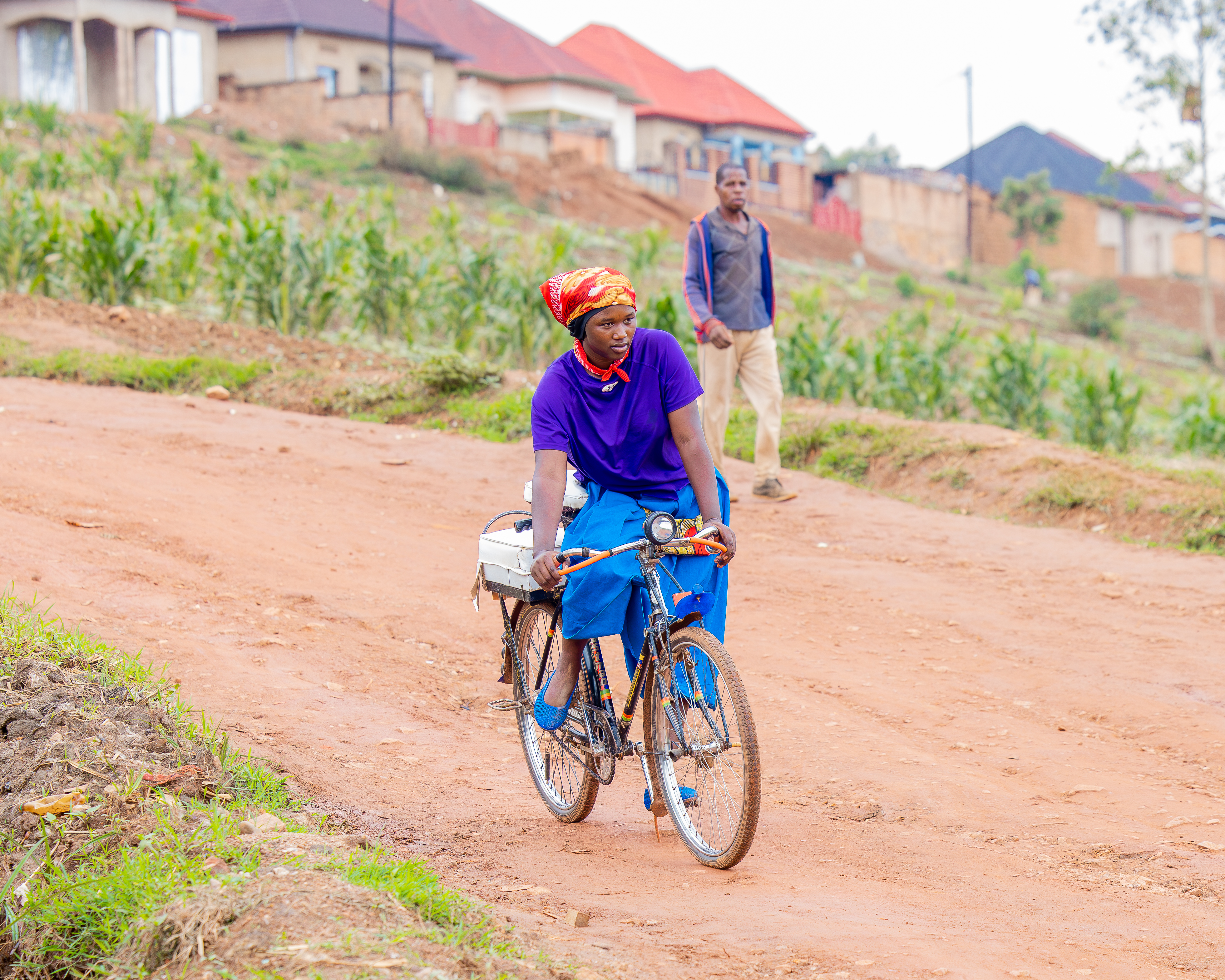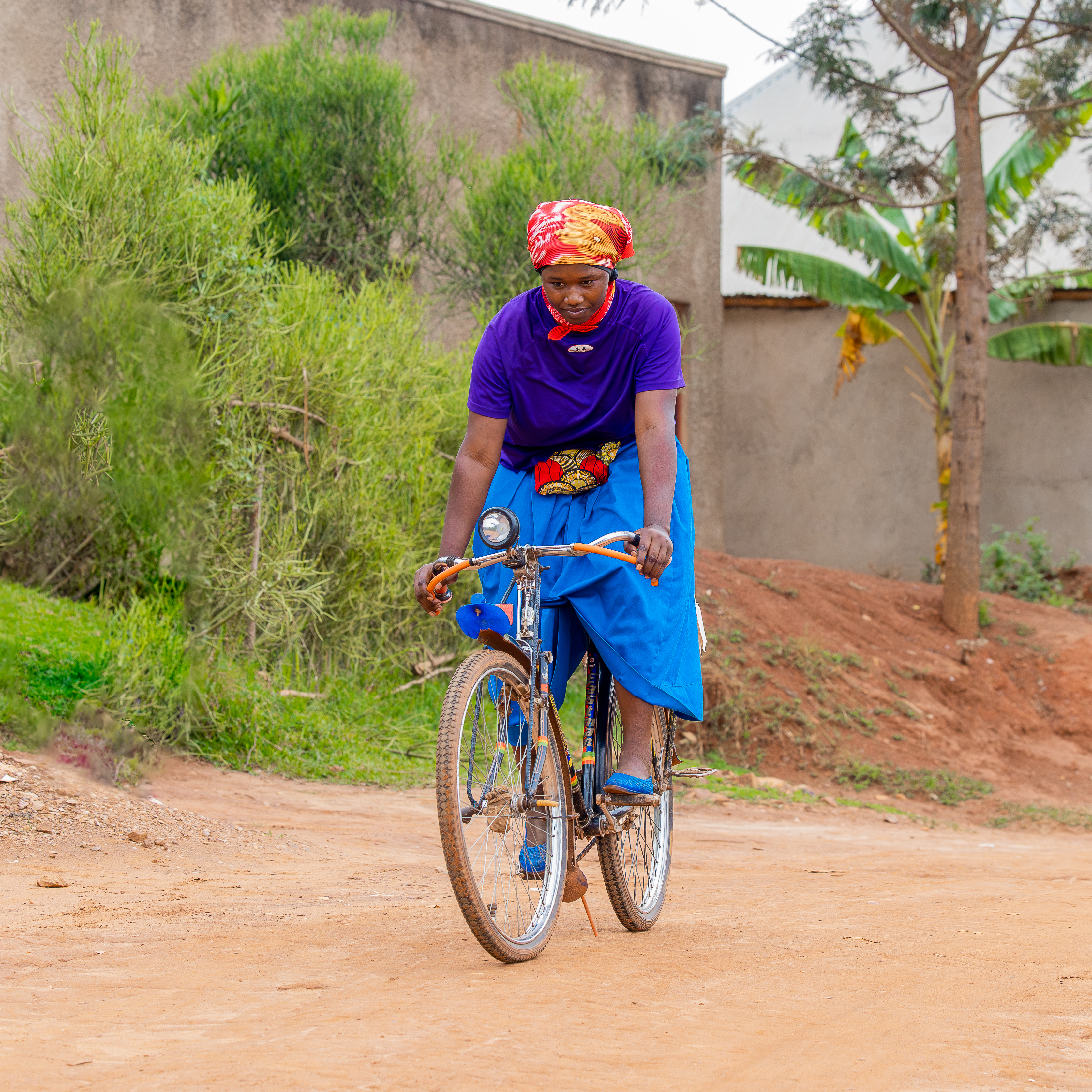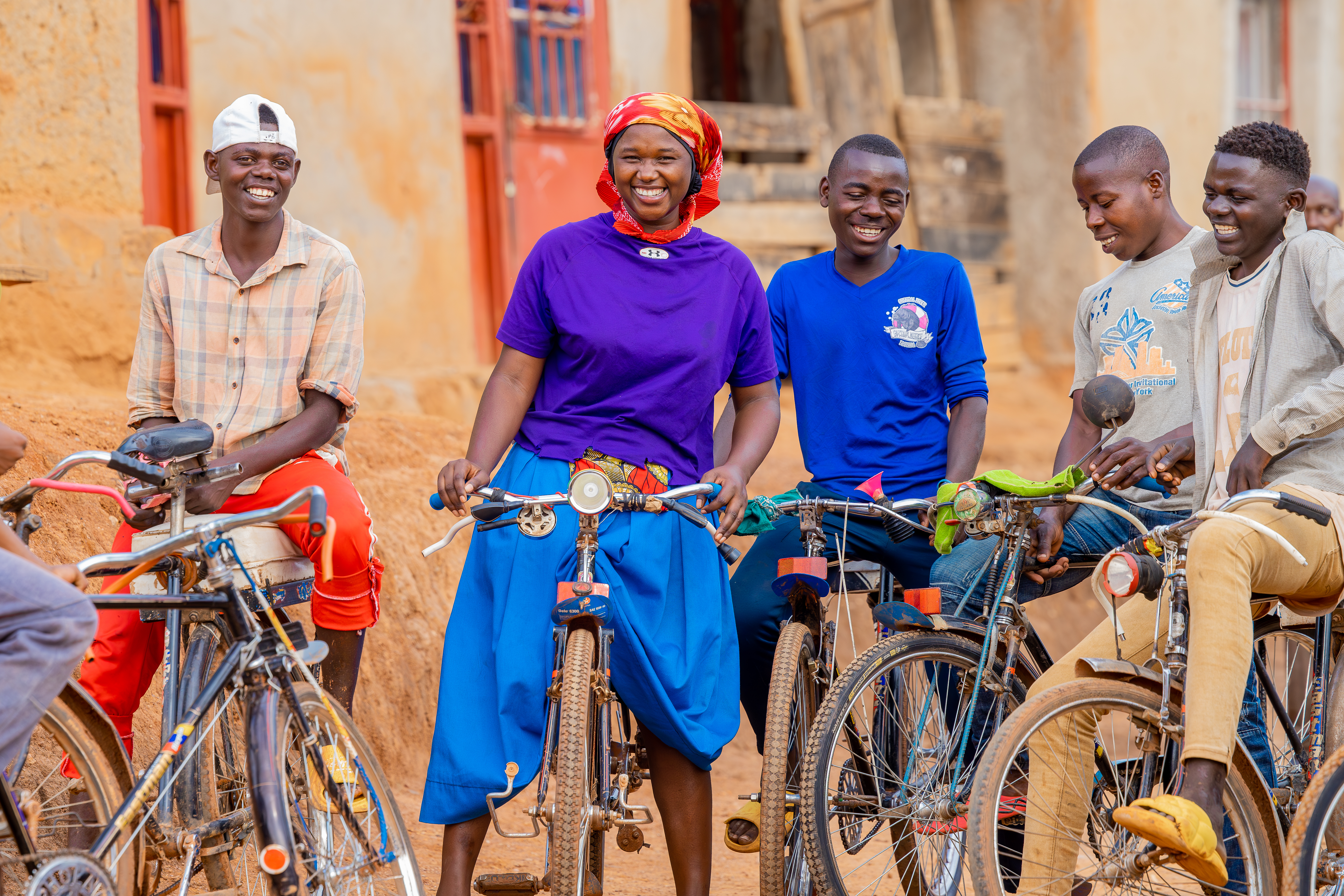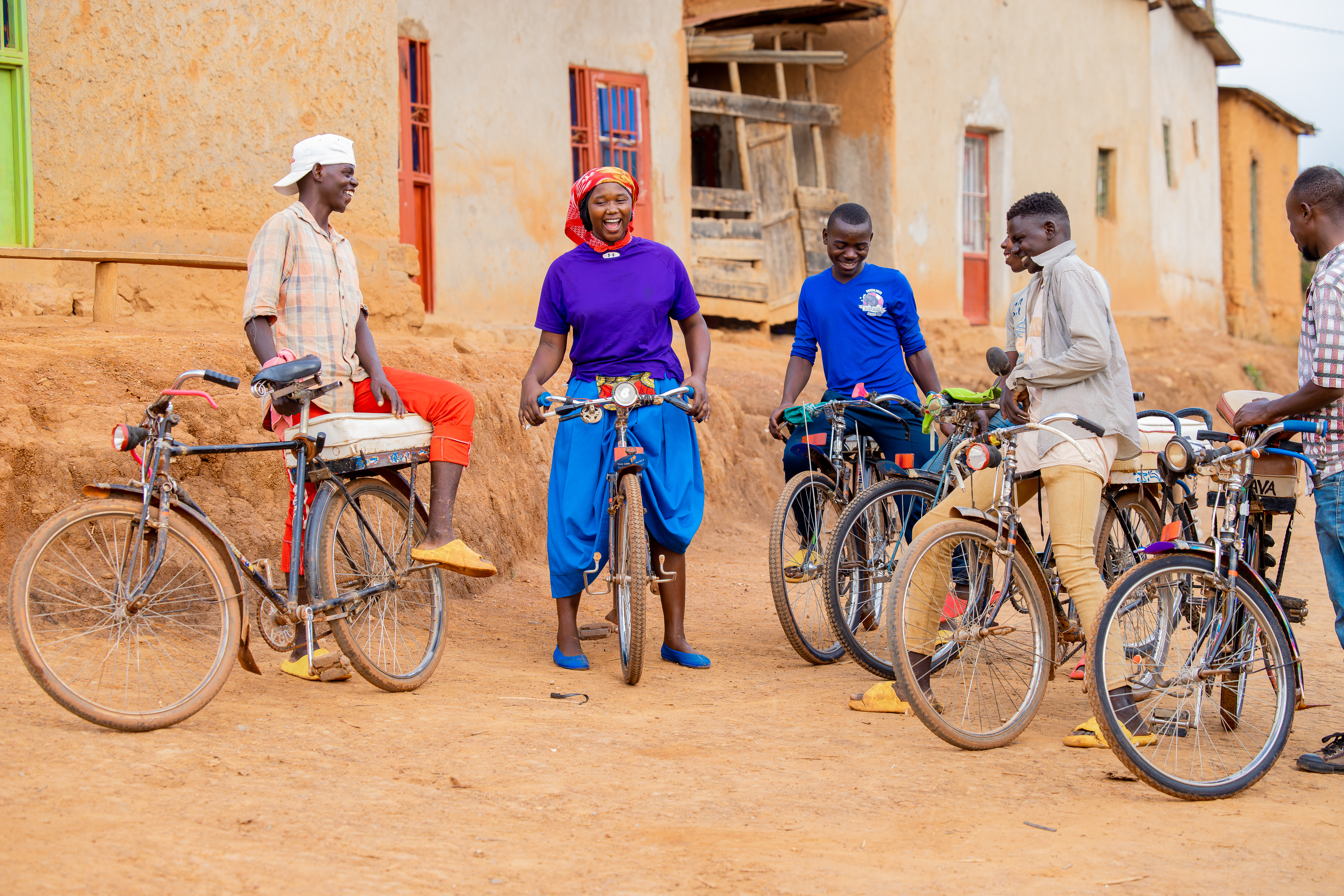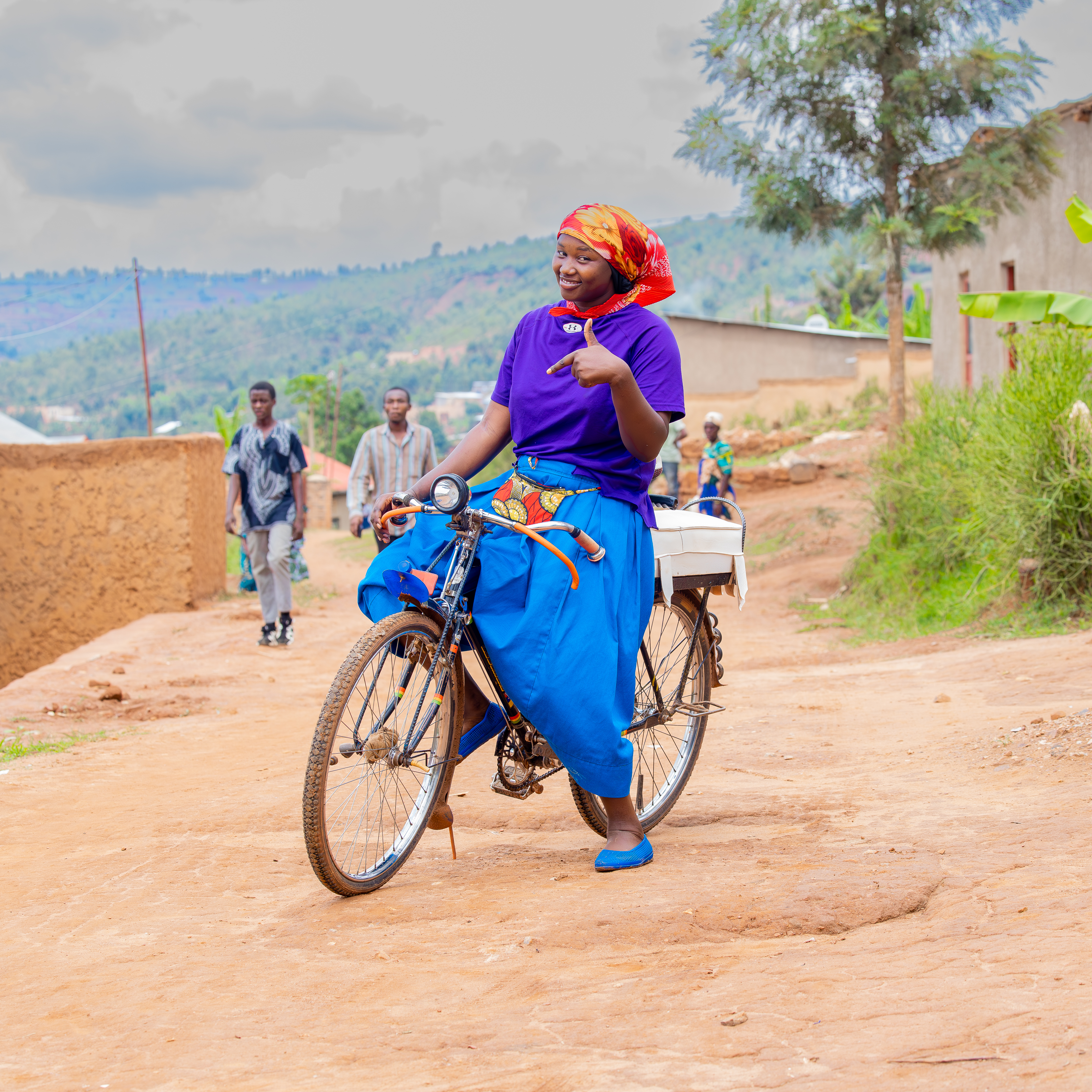Mbonyumugisha Rebecca, a woman who earns her living as a cyclist, lives in Muyumbu Sector, Rwamagana District. She ventured into this career after her family faced misfortunes that altered their lives.
Rebecca, a cyclist for 12 years, originally hails from Gakenke District. Her family later relocated to Mahama Sector in Kirehe District, where they encountered challenges that disrupted their lives, including the tragic loss of their young son.
The family owned a piece of land near Akagera River, covered with reeds. One day, while Rebecca, her mother, and her brothers were farming, they decided to take a break.
Her brother went swimming with other children in the river, but when it was time to return to work, their mother sent Rebecca to call him back. When she reached the river, she found all the other children out of the water, but her brother was missing. She was overcome with fear.
She recounted, “The other children had already left the water. Suddenly, we saw blood on the surface and then a crocodile emerged, dragging my brother, who followed me in age. It was heartbreaking because I loved him so much.”
The news of his death deeply affected the family. Her brother, who was a pillar of the family, was gone, and their lives changed dramatically. The family struggled financially, and Rebecca moved to Kigali, where her father found her a job at a factory. However, the factory later closed down.
Rebecca got married and faced a difficult life, but she remained determined to find a way to provide for her family. After giving birth to her second child, she approached her husband with a request to work as a cyclist to support their household. Initially, he opposed the idea.
Her husband offered to find her another business, but Rebecca insisted on cycling. She assured him that her new job would not interfere with her responsibilities as a wife, and eventually, he agreed.
She explained, “You’ve seen me on a bicycle. If you love me, let me ride it. Let me do this job because I enjoy it. I promise you’ll never see me look unkempt, and I’ll always be the wife you’re proud of.”
Rebecca entered a profession traditionally associated with men, determined to support her family and her siblings.
Rebecca’s decision to become a cyclist sparked debates in the community. People questioned, “A mother of two riding a bicycle? She must be manly, disrespectful, or rebellious.” These comments hurt her deeply, but she reflected on her goals and decided to persevere.
Initially, she faced disdain and ridicule. To distinguish herself, she came up with the unique idea of cycling in a skirt, commonly known as an “ingutiya.” She had a tailor make her a large skirt with a waistband and slits in the front and back, allowing her to convert it into shorts for safety if necessary.
She recounted, “Once, a man refused to pay me and disrespected me. I pulled the waistband through the slits to turn my skirt into shorts and confronted him until he paid.”
Rebecca’s choice of attire often drew attention. She explained her decision, saying she could afford pants but chose to wear the skirt to honor rural women, as it reflected the culture of her upbringing in Gakenke District.
She clarified, “I will never stop wearing my skirt. It’s a part of my heritage from Gakenke, and I want rural women to feel inspired by it. I grew up where women wore these skirts, and I’m not ashamed of it.”
Although passengers initially doubted her ability to ride a bicycle in a skirt, Rebecca’s professionalism won them over, and they became loyal customers.
Rebecca emphasized that she maintained cleanliness and dignity in a field often associated with less-than-ideal hygiene standards. She highlighted that not all cyclists are untidy, as she always presented herself well.
Rebecca faced numerous challenges, including mockery, rejection, and exploitation by men who refused to pay her. Despite this, her determination and vision kept her going.
Her growing reputation as a cyclist enabled her to advise girls and women from rural areas who feared pursuing unconventional jobs.
She shared, “My advice to rural girls and women is to realize that city dwellers are not stronger or smarter than them. Also, I urge them to always look presentable because men appreciate women who dress well. Wear clean, fitting clothes that make you look good.”
Rebecca dreams of starting a bicycle rental business, where she would lend bicycles to the underprivileged and allow them to pay in installments, helping them achieve financial independence. She also aspires to work with others to contribute to Rwanda’s development.
